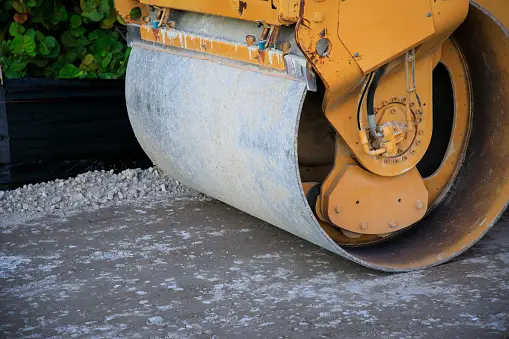Investing in Curb Appeal: The Financial Side of Large Driveway Pavers
Regarding home improvement, few projects offer the immediate visual impact and long-term value of upgrading your driveway with large pavers. Not only do they enhance the aesthetic appeal of your property, but they also contribute to its functionality and durability.
This article delves into the financial aspects of investing in large driveway pavers, offering homeowners insight into the large driveway pavers cost, accrued benefits, and considerations for this significant home improvement project.
Understanding the Cost Factors
The cost of large driveway pavers varies widely, depending on several key factors. The primary cost determinants include the type of pavers, the size of the driveway, installation complexity, and regional price variations.
- Type of Pavers: Pavers come in various materials, including concrete, brick, natural stone, and composite materials. Natural stone pavers, like granite or bluestone, are often more expensive than concrete or brick options due to their durability and natural aesthetics.
- Size of Driveway: The larger your driveway, the more materials and labor will be required, thus increasing the overall cost. It’s important to measure your driveway accurately or consult a professional to get a precise estimate.
- Installation Complexity: The cost can also be affected by the complexity of the installation process. Factors like the need for leveling, drainage systems, and intricate patterns or designs can add to the total expense.
- Regional Variations: Prices for materials and labor can vary significantly based on your location. Areas with higher living costs or limited access to materials may see higher prices.
Estimating the Costs
A basic cost estimate for large driveway pavers ranges from $10 to $50 per square foot, including materials and installation. A standard two-car driveway translates to a ballpark figure of $4,000 to $20,000. Getting multiple quotes from reputable contractors is crucial to gauge an accurate cost for your specific project.
Long-term Value and Benefits
Investing in large driveway pavers is not just a matter of upfront costs; it’s also about the long-term value they bring to your property. Some key benefits include:
- Durability: High-quality pavers are known for their longevity and resistance to wear and tear, making them a cost-effective option in the long run.
- Aesthetics and Curb Appeal: A well-designed paver driveway significantly enhances the visual appeal of your home, potentially increasing its market value.
- Low Maintenance: Unlike asphalt or poured concrete driveways, pavers require minimal maintenance and are easy to repair. Individual pavers can be replaced if damaged, avoiding the need for a complete overhaul.
- Eco-Friendliness: Certain paver types allow for better water drainage, reducing runoff and supporting eco-friendly landscaping practices.

Choosing the Right Pavers
Selecting the right pavers for your driveway balances cost with aesthetics and functionality. Here are some tips for making an informed choice:
- Consider Your Home’s Architecture: Choose pavers that complement the style and color palette of your house. For example, brick pavers might suit traditional homes, while contemporary homes might benefit from sleek, concrete pavers.
- Think About Maintenance and Longevity: Evaluate different materials’ maintenance requirements and durability. While some options might be more affordable upfront, they may require more upkeep or have a shorter lifespan.
- Explore Patterns and Designs: Different laying patterns can dramatically change the look of your driveway. Simple patterns might be more cost-effective, while intricate designs can add visual interest at a higher cost.
Installation Considerations
Professional installation is recommended for large driveway pavers, as the process requires technical expertise for proper leveling, drainage, and pattern alignment. Here are some factors to consider:
- Hire Experienced Contractors: Look for contractors with specific experience installing the type of pavers you’ve chosen. Check their references and past work to ensure quality.
- Understand the Process: Familiarize yourself with the installation process, including excavation, base preparation, laying of pavers, and sealing. This knowledge will help you communicate effectively with your contractor and manage expectations.
- Permits and Regulations: Check with your local municipality regarding any permits or regulations related to driveway construction or renovation.

Environmental Impact and Sustainability
Another crucial aspect to consider is driveway pavers’ environmental impact and sustainability. Eco-friendly options like permeable pavers allow water to seep through, reducing runoff and aiding groundwater replenishment. Additionally, using locally sourced materials can minimize the carbon footprint associated with transportation. By choosing sustainable paver options, homeowners contribute to the environment and often benefit from longer-lasting materials that offer better resistance to natural elements.
Conclusion
Investing in large driveway pavers is a significant but worthwhile home improvement project. By understanding the cost factors, estimating expenses, and weighing the long-term benefits, homeowners can make informed decisions that enhance their property’s functionality and aesthetic appeal.
With careful planning, the right choice of materials, and professional installation, a paver driveway can be a durable and attractive addition to your home, offering a solid return on investment through enhanced curb appeal and property value.
